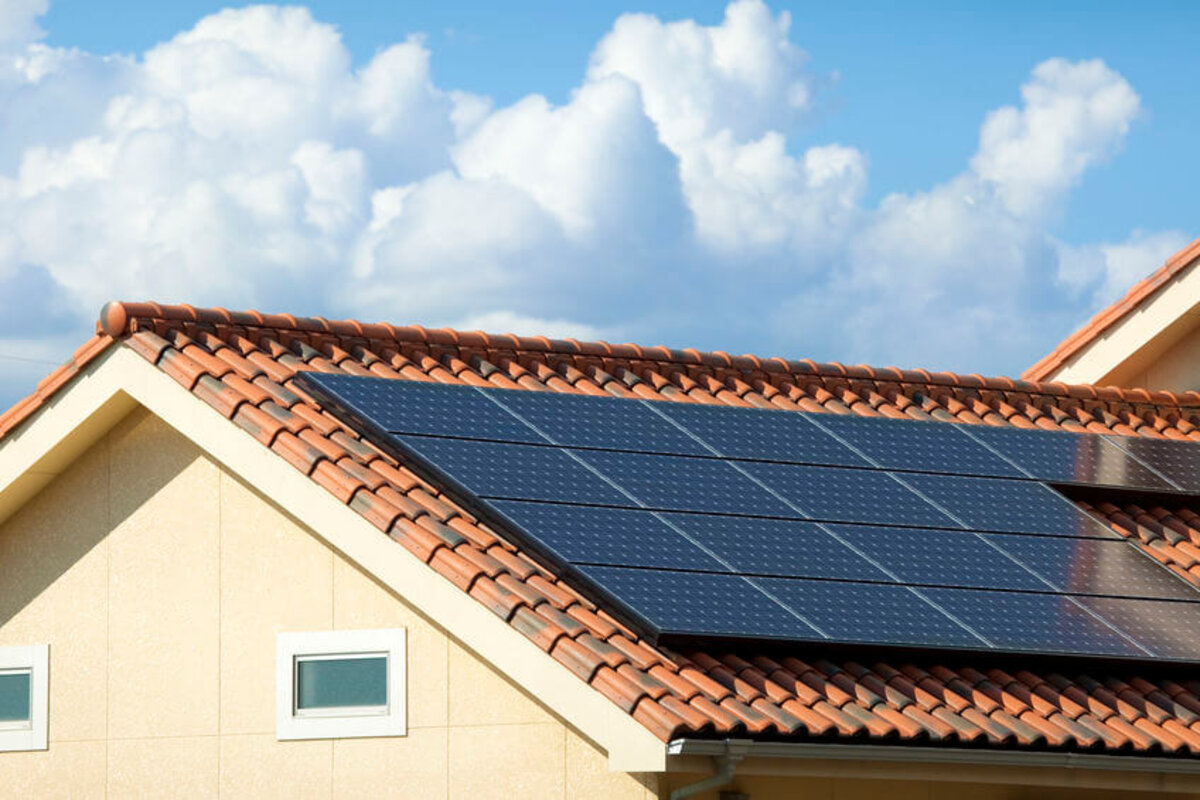
Get a Professionally Installed Solar Panels for Your Home
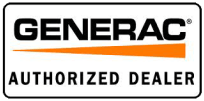



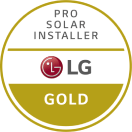

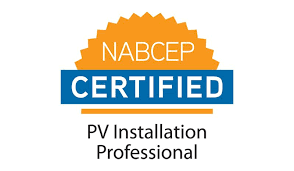
If you are curious about how solar panels are rated and how you can go about selecting the best panels for your project then you are in the right place. There are a lot of solar panels available to both residential and commercial customers looking to invest in solar. Some important aspects to consider when comparing your options include panel type, cost, wattage, efficiency, and warranty offered. In this guide, we will outline the basics of solar panels so you are prepared to compare your options while selecting the best solar panels for you.
Without getting too technical a solar panel is composed of multiple solar cells made from silicon. Individual solar cells are wired together with buss wires forming a commonly recognized grid pattern. The collection of solar cells are then housed between a backsheet and tempered glass all held together by an aluminum frame.
Without getting too technical a solar panel is composed of multiple solar cells made from silicon. Individual solar cells are wired together with buss wires forming a commonly recognized grid pattern. The collection of solar cells are then housed between a backsheet and tempered glass all held together by an aluminum frame.
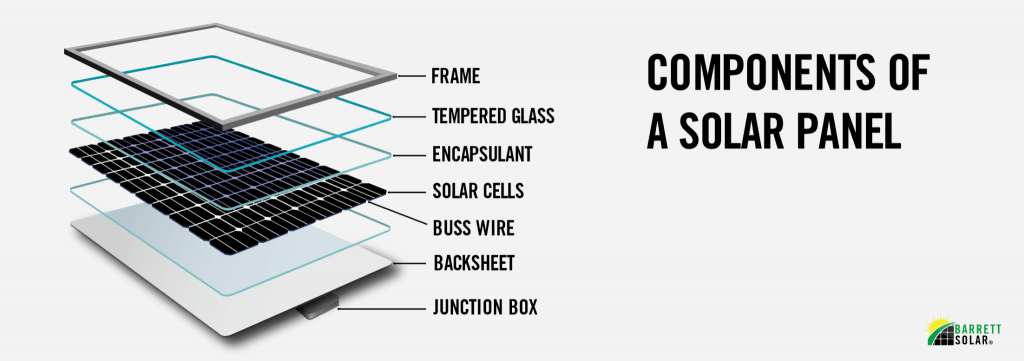
Although there are many types, sizes, and styles of solar panels in the market today, they are generally broken into two groups by the type of solar cells they are composed of.
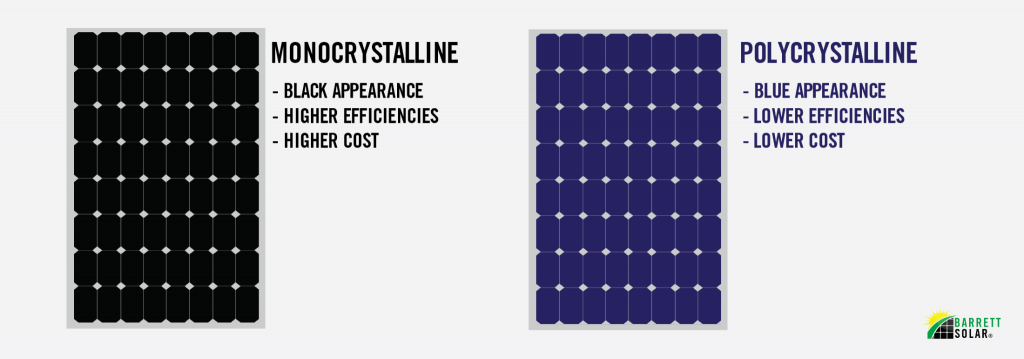
Monocrystalline solar panels
Monocrystalline panels are classified as more of a premium panel and they are made with silicon wafers cut from a single crystal hence the name monocrystalline. These panels are more sought after as they have a black appearance and are capable of higher efficiencies than polycrystalline panels.
Polycrystalline Solar Panels
If you have ever seen a solar panel that has a blueish color then you were probably looking at a polycrystalline solar panel. These are manufactured with silicon but rather than using a single silicon crystal, the cells that make up the panel are made by melting together many fragments of silicon. These normally have a lower efficiency rating than monocrystalline panels but also come in at a lower price point.
Solar panel wattage represents a solar panel’s theoretical power production under ideal sunlight and temperature conditions. As a final step in manufacturing a solar panel, manufacturers will flash a solar panel with light, in factory-controlled conditions, then measure the number of watts the panel is capable of producing. This reading is what the panels are then rated. Most residential solar panels have power output ratings from 300 to 450 watts, depending on panel size and how well they convert sunlight into energy. It’s important to note that the panel wattage is not necessarily an indicator of how much power the panel will produce on your roof, but instead a rating to size panels and overall solar systems. The industry will refer to a panel’s wattage as the nameplate rating and as you begin to size a system for your home or building you will receive a system size based on the wattage of the panels quoted and the quantity. For example, You may need a 4 kilowatt (KW) solar system to offset your home’s energy consumption. 1 kilowatt = 1,000 watts so you would need 4,000 watts of solar panels. Let’s say you were to use 400-watt solar panels. If so, you would need 10 panels (10 X 400 = 4,000). While higher power ratings are considered preferable, power output is not the sole factor in judging a solar panel’s performance and is often misunderstood. To explain why wattage may not be the sole factor in your solar panel selection let’s say you need a 4KW system. As mentioned previously you could use 10- 400 watt panels, which would give you a 4KW system, but it’s also possible to use 16- 250 watt panels to create the same 4KW system. Although you are using two completely different wattage panels you end up with the same solar system size and overall power output rating.
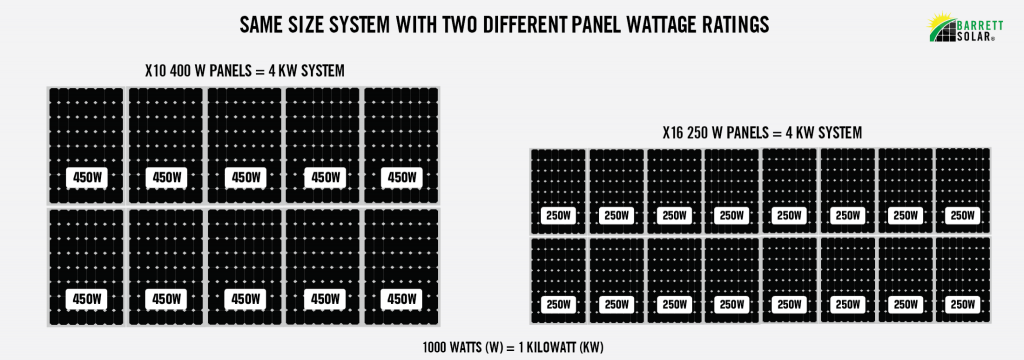
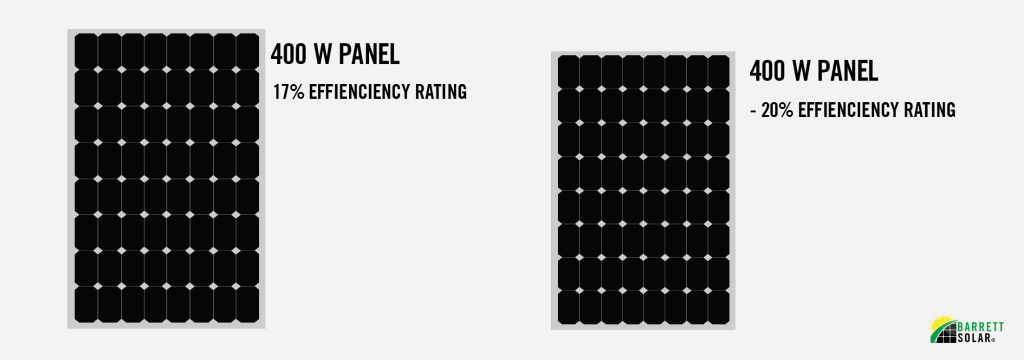
Not all of the sunlight that reaches a solar panel is converted into electricity. In fact, most of it is lost. This is where a solar panel’s efficiency rating comes into play. A solar panel’s efficiency rating is the percentage of solar energy shining on the panel that is converted into usable electricity. Multiple manufacturing factors play a role in a panel’s efficiency and most brands you will come across will have efficiency ratings between 17% and 20.5%. Now you may think the higher efficiency the better but actually, sometimes, efficiency doesn’t matter all that much depending on your scenario. To explain why efficiency may or may not matter to you let’s take two panels that are rated the exact same wattage but have different efficiency ratings. One with a higher efficiency rating and one with a lower rating. Since the higher efficiency rated panel converts more sunlight to energy it’s likely this panel will be smaller in physical size than the lower-rated panel. Both panels will produce the same amount of power however if you have limited roof space, the higher efficiency panels will allow you to produce more power in your limited area. If you have more than enough available space for solar panels then maybe the efficiency of the panel doesn’t matter as much to you. Like wattage, efficiency is only just one aspect to take into consideration when choosing which solar panel is best for you.
Solar panel warranties protect your solar investment and are an important factor in considering what panels are right for you. There are a few different kinds of warranties that manufacturers of panels offer and understanding the differences between them is important to make sure your solar panels are covered for years to come. The two primary warranties offered will be performance and product warranties.
Solar Panel Performance Warranties
A solar panel performance warranty is a guarantee of the solar panel’s production year after year. Typically a solar panel will come with a 25-year performance warranty that guarantees the solar panel will produce at 80% after 25 years in use. The higher the guarantee the better. Some top-tier manufacturers such as Silfab, and Q Cell offer performance warranties as high as 85% after 25 years. Silfab solar also offers a 30-year performance warranty, vs the standard 25 year. When evaluating which panel is best for you, it’s important to consider how much power your system is expected to produce. You may have a small system so a 5%-10% production difference might not pencil out for the added cost of a premium panel. On the flip side, you may have a very large system, and 5%-10% more production after 25 years is worth a whole lot more to you.
Solar Panel Product Warranties
A solar panel’s product warranty covers the integrity of the panel itself and protects you against problems such as manufacturing defects, or premature wear and tear. Most solar panels will come with a 10-25 year product warranty. Generally, the longest warranty possible is best, as it is a good indicator that the manufacturer you are going with really stands behind their product.
An important note here is no manufacturer warranty will cover physical damage resulting from hail or a powerful storm. This sort of coverage will normally need to come from your property insurance policy.
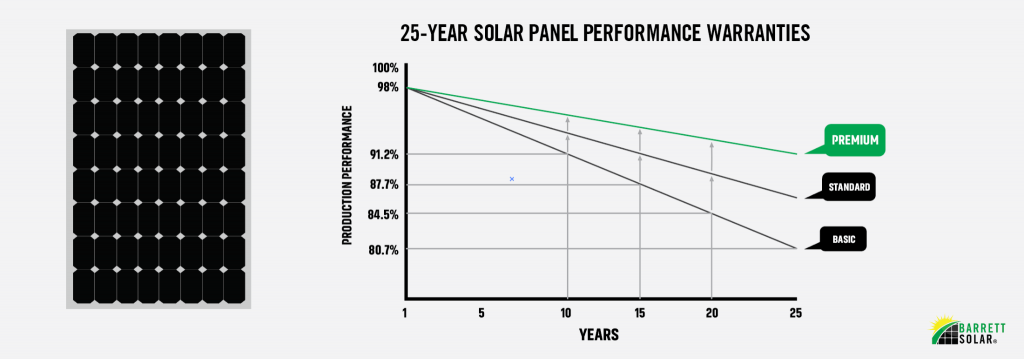
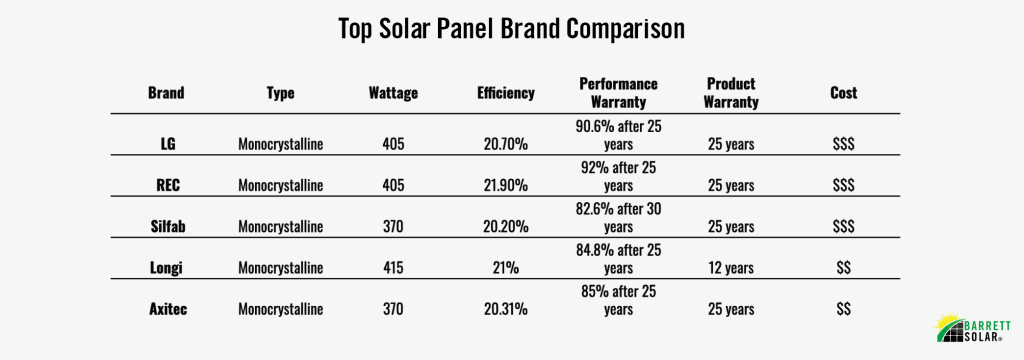
As you now know there are many factors that go into selecting the right solar panels for your solar system but here at Barrett Solar we do not want to make you feel overwhelmed. Although we can source any solar panel you may want, we do already have our top picks that we like to offer. Take a look at the panels below. We often update this section of the website to give you our top solar panel options. As always if you have any specific questions related to this guide or to the panels listed below, reach out to us today to get a free estimate for your home or to simply have a conversation with us. We look forward to helping you go solar.
Get answers to your most common questions from Barrett Solar
Generally no, but they can with a backup solution. In a standard grid tied solar panel system your solar panels will be required to shut down if the grid goes down. This is to protect power from feeding back to the grid endangering utility workers. If you want to continue to produce power when the grid goes down you will need a backup power solution with your solar panels.
Unless you are fully off-grid with backup power solutions, you will still receive an electric bill from your utility company. If your system is designed properly to match 100% of your energy needs you could reduce your bill to just your utility connection charge.
Yes, but you will need backup power solutions like batteries or generators. In some cases the county or city jurisdiction where your property is located may restrict you from going off-grid.
Solar panel systems are made of durable tempered glass and require little to no maintenance for the 25 to 35 years that they will generate power. In most cases, you don’t even need to clean your solar panels. You can let the rain or snow take care of that for you. If something does happen, you will have manufacturer warranties on all equipment installed by Barrett Solar.
Generally it takes very large hail or a major storm to damage your solar panel system. After you go solar you will want to make sure your homeowners insurance policy has enough coverage to replace any of your panels that may be damaged in a heavy storm.
The cost of a solar panel system will depend on many factors including the size of the system, the equipment, and the financing method. A solar panel system should be viewed as a major home upgrade and because every home is different it is never good to base an idea of what something should cost off a ballpark figure. Barrett Solar offers completely free no obligation solar proposals and in most cases we can give you an accurate quote if you just provide your energy usage data and a few pictures of your home.
Solar Incentives & rebates are available – Solar rebates and incentives vary depending on where you live. In Kansas and Missouri, the largest incentive available is the 26% federal investment tax credit (ITC) which allows you to deduct 26% of the cost of your solar energy system from your taxes. Certain municipalities and utilities also offer cash rebates and other incentives. If you are a business in a rural area or a farmer, the USDA offers grants as well.
Equipment with Performance and Durability in Mind. Barrett Solar Uses the Highest Quality Equipment Available, All Backed with Industry-Leading Warranties. You’ll Have Peace of Mind Knowing That Your Solar Investment Is Covered For Years To Come.
We are fully transparent, easy to deal with, offer great communications throughout the installation process and we delivery high quality equipment at the lowest prices!

4 Simple Steps to Owning Your Own Energy
Everything we do is designed to improve the customer’s experience with us. We have simplified the process for a homeowner/business owner to obtain a solar proposal. In most cases we can provide a quote digitally or over the phone!
STEP 1
Don’t waste another day renting your power. Call or email us now.
STEP 2
We provide free quotes for all our solar panel installations!
STEP 3
Don’t waste another day renting your power. Call or email us now.
STEP 4
Stop renting your power, start owning it!
200 NE Missouri Road STE 200
Lees Summit MO, 64086
(816) 584-4758